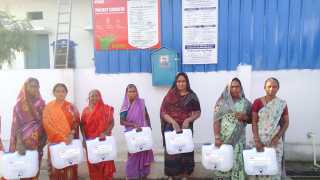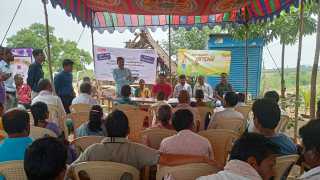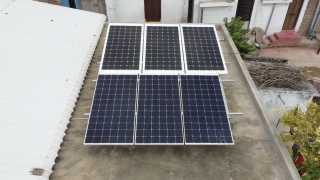Clean water is the foundation for sustainable development. The United Nations’ Sustainable Development Goals (SDGs) tackle global challenges like poverty, inequality, and climate change, with SDG 6—ensuring access to clean water and sanitation—being pivotal to the success of nearly all other goals. In rural India, where access to safe water is limited, safe water interventions are key to driving broader development.
SDG 1: No Poverty
Access to safe water plays a critical role in reducing poverty. By lowering the incidence of waterborne diseases, clean water enables people to remain healthy and productive, allowing them to break the cycle of poverty. In communities where CPW operates, families can save money on medical costs and invest more in education and economic opportunities, enhancing their livelihoods.
SDG 2: Zero Hunger
Water is essential for agriculture and food security. Safe water access supports irrigation, enabling rural families to grow food and improve their nutrition. In the areas where clean water projects are active, households can establish gardens and small farms, providing both sustenance and income from surplus produce. The availability of clean water also helps communities plan for sustainable food production, reducing hunger over time.
SDG 3: Good Health and Well-Being
Waterborne diseases like cholera and diarrhea remain prevalent in rural India, but clean water infrastructure can drastically reduce their impact. When safe drinking water is available, community health improves, and healthcare costs decline. CPW’s water purification centers, for example, have contributed to significant improvements in health outcomes in the villages they serve, creating a ripple effect of well-being and stronger, healthier communities.
SDG 4: Quality Education

Access to clean water in schools directly improves educational outcomes. With fewer illnesses, students attend school more consistently, and children—especially girls—no longer need to spend hours fetching water. This leads to better attendance and performance in school. Healthier, more present students pave the way for stronger educational attainment and long-term success.
SDG 5: Gender Equality
In most rural communities, women and girls bear the burden of water collection. By providing safe water close to home, clean water projects free up time for education and income-generating activities. This improves gender equality and empowers women to play more active roles in their communities.
SDG 8: Decent Work and Economic Growth
Clean water contributes directly to economic growth by reducing illness-related absenteeism and creating business opportunities. CPW’s water purification centers have become hubs of local economic activity. By employing local plant operators and generating foot traffic for nearby shops, our centers have created jobs and boosted local economies. Healthy workers are more productive, driving sustainable growth in rural communities.
SDG 10: Reduced Inequalities
Inclusivity is a core consideration in any clean water initiative. Vulnerable groups—whether due to physical disabilities or social marginalization—are often left behind in traditional water distribution systems. By ensuring that clean water is accessible to all, we can reduce these inequalities. Projects that include marginalized groups in their planning and execution have higher rates of community participation, benefiting everyone equally.
SDG 13: Climate Action
Water management plays a crucial role in addressing climate change. CPW’s environment-focussed initiatives like rainwater harvesting, soak pits and solar-powered purification centers have helped rural communities adapt to changing water availability and reduce their reliance on non-renewable energy sources. Our young Safe Water Ambassadors continue to help their communities develop increased awareness about contaminated water and climate change.

Left: Solar powered water purification center in Ambatpally village. Right: Safe Water Ambassadors at Zila Parishad high School, Ambatpally.
Access to clean water is essential for achieving almost every SDG. Whether it’s improving health, boosting education, or reducing poverty, clean water sets the stage for lasting progress. By investing in safe water interventions, we can create healthier, more resilient communities and make sustainable development a reality for rural India.








